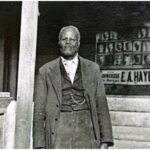In 1993, Pamela Carter became a trailblazer in Indiana’s history by becoming the first Black woman to serve as the state’s Attorney General. Her election marked a pivotal moment not only in Indiana’s legal landscape but also in the broader movement for diversity and representation in politics. Carter’s journey to this historic achievement has inspired countless others and paved the way for future leaders to follow in her footsteps.
A Groundbreaking Election for Indiana
Pamela Carter’s election in 1993 was a landmark achievement. She ran for the position of Indiana’s Attorney General against Republican Timothy Bookwalter, defeating him with 52% of the vote. Carter’s win was not just significant because of her political accomplishments; it broke barriers as she became the first African American and the first woman to hold the office. In a state where political offices had been historically dominated by white men, Carter’s victory was a symbol of progress.
During her tenure from 1993 to 1997, Carter’s work focused on protecting consumers and reforming the legal system. She also worked closely with Governor Evan Bayh’s administration, especially in the area of public health and human services. Carter’s leadership set the tone for what was to come and highlighted her commitment to making the law work for everyone in Indiana.
Educational Background and Early Career
Pamela Carter’s path to the Attorney General’s office was paved with education and a deep commitment to justice. She attended the University of Detroit, where she earned her bachelor’s degree in social work and pre-law. She went on to pursue a Master of Social Work at the University of Michigan before earning her Juris Doctorate (J.D.) from the Indiana University School of Law. With her academic credentials, Carter was well-prepared for a career that would focus on legal justice and consumer protection.
Before running for Attorney General, Carter had an extensive career in law. She worked as a trial attorney and specialized in consumer protection. Additionally, she served as an enforcement attorney for Indiana’s Secretary of State, where she tackled legal issues related to state regulations. These experiences shaped Carter’s leadership style and equipped her with the skills needed to excel in high-profile political roles.
A Legacy of Influence
Pamela Carter’s impact extended far beyond her role as Attorney General. In 1995, she was recognized by Ebony magazine as one of the “100 Most Influential Black Americans,” further solidifying her status as a leading figure in both the legal field and the broader civil rights movement. This recognition helped elevate her profile, and her achievements became a source of inspiration for women and minorities pursuing careers in law and politics.
After her time as Attorney General, Carter continued to excel in the business world. She served as Vice President of Manufacturing at Cummins, a global manufacturing company, and later as President of its Distribution Business unit. Her leadership in the corporate world was just another testament to her versatile talents. Furthermore, she became a member of the board of directors of Hewlett Packard Enterprise in 2015, continuing to make waves in the business world.
A Lifelong Advocate for Justice
Throughout her career, Carter has remained a steadfast advocate for justice and fairness. She never lost sight of her mission to create opportunities for others, especially for underrepresented groups in both politics and business. By becoming the first Black woman to serve as Attorney General in Indiana, she broke down long-standing barriers, showing the next generation that anything is possible.
Her contributions have inspired many, especially women of color, to pursue careers in law, politics, and business. Pamela Carter’s legacy will continue to open doors for future leaders, just as it opened new opportunities for herself and countless others who look up to her groundbreaking achievements.
Conclusion
Pamela Carter’s journey to becoming Indiana’s first Black and first woman Attorney General in 1993 is a story of determination, hard work, and breaking new ground. Her accomplishments have made a lasting impact on the state and have inspired future generations of leaders. As we celebrate her legacy, we are reminded of the importance of diversity, representation, and the power of trailblazers who pave the way for others to follow.






Leave a Reply